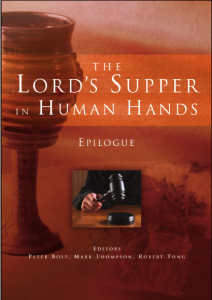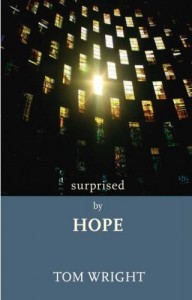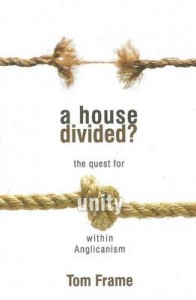 There are a number of causes that lie behind ministers and pastors burning out, hitting the wall, breaking down, or generally flaming (or shaming) out. Underlying these causes are issues of human frailty, sin, insecurity and depravity.
There are a number of causes that lie behind ministers and pastors burning out, hitting the wall, breaking down, or generally flaming (or shaming) out. Underlying these causes are issues of human frailty, sin, insecurity and depravity.
A significant example of this is the tendency for ministers to overextend their concept of responsibility to the point where they are carrying burdens that don’t belong to them, and so collapse. To illustrate, consider the following recount of a conversation I had with a mental health professional recently…
Him: “Your organisation seems remarkably well set up to handle cases of burnout and breakdown.”
Me: “I think that is due to it having some experience in this area. In fact the prevalence of clergy breakdown is high across all denominations…”
Him: “Why is that? What are the churches doing wrong?”
Me: “I don’t necessarily think it comes from expectations placed by church hierachy or even from the grassroots (although that is more common), I think it usually comes from self-imposed expectations by most pastors.”
Him: “What are they?”
Me: “Those associated with the world’s worst job description – ‘Go and change the world.’ How on earth do you set KPI’s and SMART goals for that?!??”
Here’s the rub for many of us ministers. We do deal with eternal matters. We are about interacting with the broad eschatological arcs of history and applying them in the broken, hard, confusing here-and-now. Without that the task would be nothing but some form of insipid civic chaplaincy, at best.
But how is a temporal person expected to further such eternal things? Does the responsibility for the Kingdom of God lay upon our shoulders?
It’s not like there isn’t a biblical mandate for stretching our arms wide, thinking big and reaching long. Consider two popular biblical commissions that have energised many, including myself:
“Go and make disciples of all nations, baptizing them in the name of the Father and of the Son and of the Holy Spirit, and teaching them to obey everything I have commanded you. (Mt 18:19-20a)
“…I give you this charge: Preach the Word; be prepared in season and out of season; correct, rebuke and encourage – with great patience and careful instruction… keep your head in all situations, endure hardship, do the work of an evangelist, discharge all the duties of your ministry.” (2 Tim 4:1b,2,5)
And it’s not like there’s any pretense that it’s going to be easy. Paul, for instance, exemplifies something of the pastoral reality when he corrects (with only a hint of sarcasm) the spiritual pride of the Corinthians:
“We are fools for Christ, but you are so wise in Christ! We are weak, but you are strong! You are honoured, we are dishonoured! To this very hour we go hungry and thirsty, we are in rags, we are brutally treated, we are homeless. We work hard with our own hands. When we are cursed, we bless; when we are slandered, we answer kindly. Up to this moment we have become the scum of the earth, the refuse of the world… I urge you to imitate me.” (1 Cor 4:10-14, 16)
All this is stuff that we are charged with doing, energy and cost that we are called to bear as ministers of the gospel. It is unashamedly, and in the Bible often quite literally, a calling for martyrs. (The word, in the broadest sense, simply means “witness”, a martyr bears witness to the truth even to the end.) To have passion for the gospel is to be passionate for Jesus and so share his Passion. This means that ministry involves suffering, as Paul says:
“Now I rejoice in what was suffered for you, and I fill up in my flesh what is still lacking in regard to Christ’s afflictions, for the sake of his body, which is the church. I have become its servant by the commision God gave me to present to you the word of God in its fullness – the mystery that has been kept hidden for ages and generations, but is now disclosed to the saints.” (Col 1:24-26)
So, is this what ministry is all about – responsibility for the application of eternity, commitment to whatever affliction and suffering is necessary?
Perhaps, yes, for it’s an answer that looks like Jesus, and we are called to imitate him.
But it’s an answer that is missing one thing – Jesus himself.
The picture of ministry, if concluded at this point, would be concluded too early. And the result, I contend, is despair and burnout.
The thought process in this incomplete picture runs like this:
- The minister has been charged with ministry.
- The responsibility for ministry lies with the minister – whose job it is to do the baptizing, the teaching, the preaching, the correcting, the rebuking, the encouraging, etc. – if you like, the bringing of the Kingdom of God.
- When the ministry lacks fruit (as it always will in certain seasons of consolidation or testing) or misses some non-biblical, human-imposed KPI (e.g. something nonsensical like percentage growth in attendance) then this must be because the minister has not baptized, taught, preached, corrected, rebuked, or encouraged, etc. well.
- The answer is to push harder, suffer more, embrace weariness as a friend, and push on in affliction, do everything yourself, etc.
Such a thought process is often internal to the minister and fueled by an over-developed sense of duty or responsibility, and in recent times amongst younger generations by an overdeveloped sense of machoism.
But it misses Jesus.
It may be a picture that is patterned on Jesus, but it actually ignores him or replaces him.
It misses the point.
The point of ministry is never the minister, it is God.
The heart of ministry is not affliction, it is grace.
We need a more complete picture. Which, unsurprisingly, is actually the picture that the Bible provides. Consider the words of commission listed above, this time with some words of context:
“All authority in heaven on earth has been given to me. Go and make disciples of all nations, baptizing them in the name of the Father and of the Son and of the Holy Spirit, and teaching them to obey everything I have commanded you. Surely I am with you always, to the very end of the age.” (Mt 28:18-20)
“In the presence of God and of Christ who will judge the living and the dead, and in view of his appearing and his kingdom, I give you this charge: Preach the Word; be prepared in season and out of season; correct, rebuke and encourage – with great patience and careful instruction… keep your head in all situations, endure hardship, do the work of an evangelist, discharge all the duties of your ministry.” (2 Tim 4:1-5)
The task is not “Do ministry” it is “Given that Christ is real and present, minister with him.”
And so Paul can write about doing “everything through him who gives me strength” (Phil 4:13) and “struggling with all his energy, which so powerfully works in me” (Col 1:29). And when it comes to affliction he looks only to “suffering by the power of God, who has saved us and called us to a holy life – not because of anything we have done but because of his own purpose and grace.” (2 Tim 8b-9). He is echoed in the lives of the early church fathers – people like Polycarp – who would deliberately avoid affliction and martyrdom where they could because it was seen not as something to run towards but as a grace to receive if, and only if, it is given and empowered by God.
In other words, without the power of God, without his energy, without Christ’s strength – in short, without grace – ministry is simply human, sin-ridden, frail and emotionally deadly. Without the specific call of God, suffering is the fruit of sin and pride, and the grace is for it to be dealt with or remedied, not embraced.
And those who are in ministry (which is all of us, right?) would do best not to begin with ourselves, on human responsibility and human agenda; but to begin with worship and actively work from there, by his grace alone, all the way to the end.










